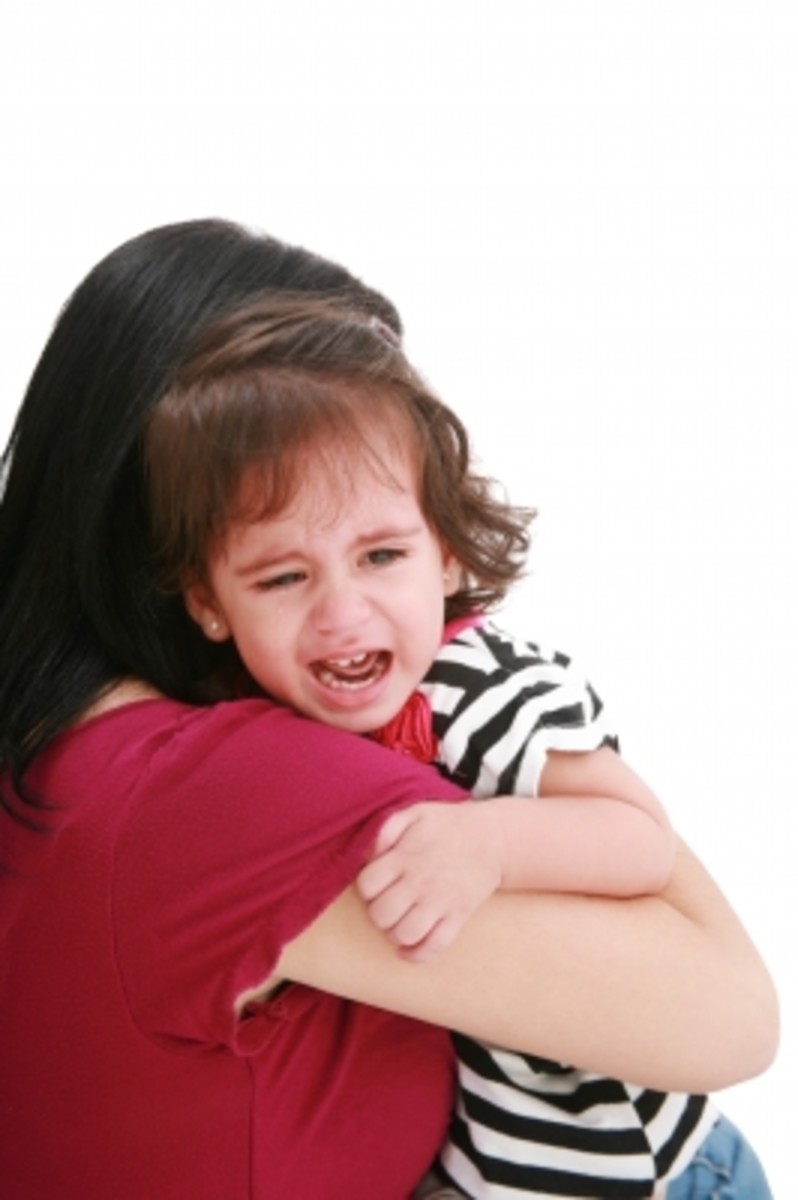To Spank Or Not To Spank? (Hell Yes!)

Growing up throughout the 1970s and halfway through the 80s, many of the children I knew—myself included—received both love and consistent discipline in a less than sophisticated balance that made most of us Generation Xers appreciate being respectful children. Between corporal punishment in school, spankings at home, and the almost overwhelming acceptance by society of the notion of having to occasionally resort to physical reinforcement of rules, we developed (relatively speaking) a successful balance of respect for the adults in our lives and motivation to stay on the right path as we grew into adult hood. In my line of work working with at-risk teens, you get a clear-cut perspective of why today’s youth seem so out of control.
But given the difference in behavior between the young people today—like those I work with—and those of us who grew up with that particular method of reinforcement, its easy to see that spanking does potentially have its place in modern child-rearing given its shrinking use with today’s kids.
Insomuch as the behaviors of young people of today, the counter-productive pastimes which they seem to obsessively engage in (unprotected sex, drinking, drugs, low- and mid-level criminal activity, and gang involvement to name a few), the lack of respect for adults/authority figures, and the near contempt for which they have for education by way of their in-school behaviors is indicative of the lack of direct parental management. Needless to say these behaviors, although exhibited from time to time but were limited to a few of the “bad kids” back in the day, were nowhere near as rampant in schools as they are today. Today, youth are brazenly bringing drugs to and even having sex in our schools. A generation ago, there was the copious use of corporal punishment—paddling—in schools working in concert with involved and responsible parents at home (who were also inclined to administer their own forms of corporal punishments) which helped to help stem the tide of such potential behavior. Admittedly, its not as simple as the lack of corporal punishment which is at fault here for the misbehavior of today’s youth; the declining standards of parenting plays a major part.
But over the last 25 years or so, overly liberal attitudes have come rewrite child rearing methods to the point where fewer and fewer parents and adults are opting to use the method. To this extent, laws and the courts have all but criminalized the long-held right of a parent to use spanking as a means help rear children properly; we can forget that Biblical nonsense about sparing the rod…. Today’s youth know this. Many is the time I have heard and witnessed in the public schools where I’ve worked instances of children swapping stories about how they would be call the authorities on their parents or have them arrested if they were physically “assaulted.”
Those who promote the “spanking is bad” school of thinking have research to back them up, such as the study TulaneUniversity study providing the “strongest evidence yet against the use of spanking” (http://www.physorg.com/news190321386.html). Additionally, vocal opponents against spanking, such as The American Academy of Pediatrics have given official weight as well as a level of credibility to the anti-spanking school-of-thought. The problem is that such thinking seems to be out of touch with the reality of today’s misbehaving youth. Many of the at-risk youth I work with have said that they “wouldn’t have been so bad if their parents had whooped them.”
And without this research, the common-sense level of reasoning as to why parents should not spank their children tends to fall apart. Consider the traditional argument that spanking could give the wrong message that “violence is an acceptable way to express anger and deal with conflict.” Would that be the case, why then do we as a society use capital punishment to teach that murder is wrong? The logic you see is quite inconsistent to use a way to assail such a long-held practice.
Then there is the belief that “spanking is traumatic” to the child. The majority of Americans prior to the current crop of youth are quite familiar with the experience with having our backsides tanned by loving and concerned parents. As long as it wasn’t overdone, the only “trauma” to us was the memory of having to wait until our fathers got home from work before whippings were administered as a corrective measure; the whippings themselves unless particularly brutal did not stain our memories in the way that researchers psychiatrists would have us believe.
In fact, the only “benefits” that removing spanking as an option for rearing our children has is that it has needlessly empowered our youth to the point where they now lack discipline, made youth aware that there are no immediate consequences for their actions, and it has resulted in resulted in creating a disruptive environment where authority is constantly being challenged by those lacking the experiences to consider the consequences of their actions. For many parents, the propensity to discipline has now devolved into the penchant to love our children too much in many cases. You may ask how can a parent “love their children too much?” Its not as far-fetched as you may think. Parents who simply love their children cater to their needs. Parents who love their children too much cater to their wants. The result is that in struggling to come up with a more effective way to discipline children, parents have resorted to subconsciously buying them material things, and then threatening to withhold or take away those same things as a corrective measure. When the reality of the ineffectiveness of this practice becomes apparent, these same parents will then begin to make excuses for their children’ misbehavior rather than opting to use a more direct means…in effect, loving them too much. More “loving” measures such as withholding and “time out” are simply too impotent to be effective (logically speaking, if “time out” actually worked, then why are our jails and prisons so overcrowded?).
As mentioned before, these effects are best observed in our public schools. Having worked in the public schools for most of the last decade, I have observed that teachers today have no chance to actually teach kids because in most cases, they're busy fighting just trying to maintain classroom order. The kids who don’t listen, are not quiet, and are physically disruptive are in most cases the same kids who have never been disciplined; their parents have either ignored them, or made excuses for them when confronted by authorities. During my own youth, children did not act in such ways partially because corporal punishment was the rule in the public schools. And in most cases, if a child was spanked in school, s/he had to face worse at home. Disrespect and insubordination was not allowed in either place.
Now, teachers must as a matter of routine accept disrespect and insubordination because there is no immediate consequence for the child. The fact that they may drop out of school and live in poverty is too abstract. So as a consolation practice, teachers will send unruly and undisciplined students to the office, the office sends them to the counselor, and the counselor tells them to be “Good and go back to class;” nothing’s accomplished. As a more far-reaching consequence, the children with discipline problems are short-changed in what they are being taught because both [the] teachers’ time and the district’s resources are being diverted to take care of kids who wont listen. Corporal punishment, not abuse, can correct a lot of this. Anyone who hasn’t worked in the public schools or have a frame of reference to measure the difference can’t appreciate the problem in its totality.
Back during that comparatively simpler time when I grew up, spanking helped—along with consistent and loving parenting—instill in us a level of respect, obedience and self-control that you see lacking in today’s youth. Most of us turned out to be well-behaved, well-adjusted adults. Contrary to what the research implies about how spanking “damages a child's sense of security,” I have found that it helps establish a clear sense of stability as well as security. By knowing what our boundaries were and what the consequences would be for our negative behaviors, we as children felt rooted and, as a consequence we flourished as adults. Sure, there were parents who took corporal punishment to an extreme…to the point where it became abusive. But not all spanking is wrong.
Quite simply, if we knew there was pain involved as a consequence of engaging in some illicit activity, most of us who would receive spankings/corporal punishment as a corrective measure would think twice about doing something which we knew we had no business doing.
See also: "The You Tube Father's Laptop Shooting - You Go, Boy!")
- Donate
If you like what you'e read hear, please feel free to contribute to future publications








